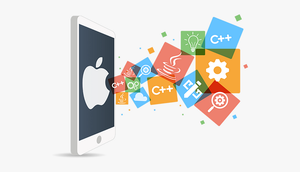More from Dennis Jennings
More in Politics
Related Blogs
Les archives
Partage Social
Unlocking Success: Navigating the Journey from Posting to Onboarding for iOS Developers
Corps
In the fast-paced realm of mobile app development, the process of hire dedicated iphone app developers is a critical juncture that can significantly impact the success of your project. From crafting a compelling job posting to the crucial onboarding phase, every step in this journey plays a pivotal role in building a strong, skilled, and cohesive development team.
Crafting the Perfect Job Posting
Setting the Foundation for Success
The journey begins with crafting an enticing job posting that not only attracts top-tier talent but also clearly outlines the expectations and requirements for the role. Consider the following elements when drafting your job description:
1. Clear Job Title and Role Description:
- Use a concise and descriptive job title that reflects the specific role and responsibilities.
- Clearly outline the duties and expectations associated with the position.
2. Technical Requirements and Skills:
- Specify the technical skills required for the role, such as proficiency in Swift, Objective-C, and familiarity with iOS frameworks.
- Highlight any additional skills or experience that would set candidates apart.
3. Company Culture and Values:
- Provide insights into your company's culture and values to attract candidates who align with your organization's ethos.
- Showcase any unique aspects of your work environment that make your company an appealing place to work.

Screening and Shortlisting
Navigating the Sea of Resumes
Once the job posting has garnered attention, the next step involves efficiently screening resumes and shortlisting candidates who align with your project's needs. Streamline this process by focusing on the following:
1. Technical Assessment:
- Develop a technical assessment or coding challenge that evaluates candidates' practical skills.
- Use this stage to gauge problem-solving abilities, coding proficiency, and familiarity with iOS development.
2. Portfolio Review:
- Evaluate candidates' portfolios to gain insights into their previous work and project experiences.
- Look for diversity in projects, innovative solutions, and alignment with the scope of your project.
3. Cultural Fit:
- Conduct initial interviews to assess candidates' cultural fit within your team.
- Gauge communication skills, collaboration potential, and enthusiasm for the project.
Interviewing and Evaluating Candidates
Digging Deeper into Expertise
The interview process is a crucial phase in identifying the most suitable iOS developers for your project. Structured interviews that encompass technical, behavioral, and situational questions can provide a comprehensive view of each candidate's capabilities. Consider the following strategies:
1. Technical Interview:
- Dive deep into candidates' technical knowledge, problem-solving abilities, and understanding of iOS development best practices.
- Use real-world scenarios and challenges to evaluate their approach to problem-solving.
2. Behavioral Interview:
- Assess soft skills and interpersonal qualities through behavioral interviews.
- Focus on communication, teamwork, adaptability, and how candidates handle challenges.
3. Project-Specific Questions:
- Tailor interview questions to the specifics of your project.
- Assess candidates' ability to apply their skills to the unique requirements of your app development endeavor.
Onboarding: Setting the Stage for Success

Welcoming New Talent into Your Ecosystem
The onboarding process is the final and critical phase of integrating new iOS developers into your team and project. A well-structured onboarding program ensures a smooth transition and accelerates the assimilation of skills and knowledge. Consider the following elements:
1. Comprehensive Orientation:
- Provide an in-depth orientation that covers your company's mission, values, and overarching goals.
- Familiarize new hires with your team structure, project timelines, and communication channels.
2. Technical Training:
- Facilitate technical training sessions to align new hires with your development environment, tools, and coding standards.
- Encourage collaboration and knowledge sharing among team members.
3. Mentorship Programs:
- Pair new hires with experienced mentors to guide them through the initial stages.
- Foster a culture of continuous learning and professional growth.
Conclusion: Setting the Stage for Success
In the dynamic landscape of iOS development, hiring dedicated iPhone app developers is a strategic undertaking that demands careful consideration at every stage. From the inception of a compelling job posting to the onboarding process that sets the stage for success, each step plays a crucial role in building a robust and skilled development team. By investing time and effort into the hiring process, you not only secure top-tier talent but also lay the foundation for a successful and collaborative project. The journey from posting to onboarding is not just about filling a role; it's about cultivating an environment where expertise thrives and innovation flourishes.












commentaires